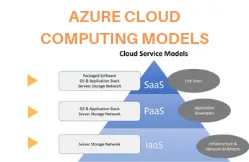Which Is The Best Course After Graduation?
As today's job market becomes more dynamic and specialisation becomes more important, graduation sets the ball in motion for many, marking the beginning of a career-built path. A graduate degree will always provide a solid background as the world advances stably. Still, professional courses can open the door for learning and staying ahead in various industries and help you stand out in the competitive job market. This guide will present a detailed discussion of some of the best professional skills post-graduation, cutting across different fields with diverse career choices and industry requirements.
Data Science and Analytics: In the data-driven era, specialists who can merge the talent of data science, machine learning, and business analytics into explainable and actionable solutions are always paid respect. Courses in data visualisation, statistical analysis, and functional languages like Python are paramount. Forums such as Coursera, edX and Udacity feature programs structured based on different skill levels, ranging from beginners to highly advanced.
Project Management: Effective project management is an important factor every sector experiences to ensure the right implementation and the full implementation of the projects. Qualifications like PMP (Project Management Professional) or CSM (Certified ScrumMaster) are good ways to learn and will add great value to your project management skills and creditability.
Digital Marketing: With online distribution sharply growing, attractive and effective digital marketing expertise is sought after today. Classes focused on SEO, social media marketing, content marketing, and data analytics allow one to master digital marketing tools and communication channels.
Finance and Accounting: However, many professionals may have to study and demonstrate expertise in finance and accounting to have a good start. This can be done through taking a Chartered Financial Analyst (CFA) or a Certified Public Accountant (CPA) certification as a point of departure or shock. Furthermore, the semester in which one completes financial modelling, investment banking, and risk management subjects develops the necessary practical knowledge and skills employers would want in the finance industry.
Cybersecurity: First, explaining the association between increasing cyber-attack pipelines and technological complexity is important. This is where cybersecurity becomes a critical knowledge domain. Software Engineering, Information Security Risk Management, Computer Network Security, and Cryptography are under the umbrella of academic disciplines that instruct IT professionals to safeguard digital assets and take countermeasures to security risks. It could also include certifications using which such as the Certified Information Systems Security Professional (CISSP).
Healthcare Management: Management builds performance and sustains trust in healthcare organisations, which may deliver success or be resistant. Healthcare Economics, Quality Management, healthcare policy analysis, and strategic planning are examples of areas that earn a healthcare management student the title of Healthcare administrator.
Human Resources Management: Human resources are the utmost expression of organizational success, and their management is thus critical. Human resource management coursework may include recruitment, appraisal, relations with personnel, and organizational growth. Whether moving in HR or trying to move on to the next level, people gain strategic skills through taking specialized courses and certifications.
Supply Chain Management: With contemporary economies being integrated into international life, supply chain management has become of great importance as a tool in creating a well-coordinated business process and meeting the needs of consumers. Students of courses in warehousing, procurement, inventory management, and supply chain optimisation develop their knowledge and expertise in building a fault-tolerant supply chain that can avoid disruptions.
Graphic Design and Multimedia: Creative industries contain people with various skills such as advertising, marketing, and brand building. They are the brains of the industry. Design courses, including digital imaging, layout (typography), and multimedia authoring, provide the basis for an appealing and high level of visual creation. For one, software platforms such as Adobe Creative Cloud, which have certification programs in different tools of the trade, validate competency in universal software options.
After you graduate, it is a significant step to take on professional programs that match your career targets, new industry patterns and personal likes. Whether your goal is to build expertise in new areas of technology, demolish management skills, or have fun doing something you like, lifelong learning and the development of new skills are the keys to professional career progression and flourishing. Through ongoing preparation and gaining relevant certifications and technical skills, Apponix Academy helps contribute positively to the development of the industry and securing your place as a top-performing employee with great career prospects. By leveraging these resources and support services, post-graduates can make well-informed decisions about choosing the best courses at Apponix Academy that aligns with their career objectives and aspirations.







